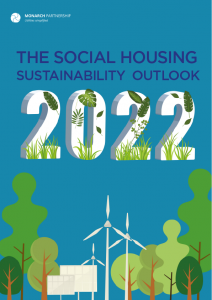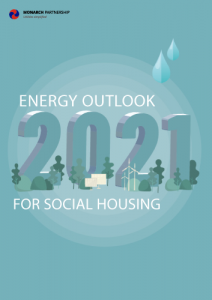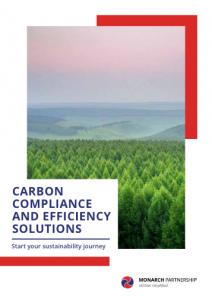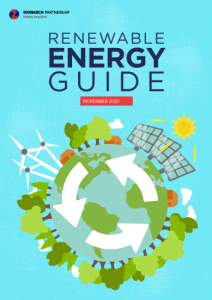Sustainability is rapidly becoming a top priority for businesses around the world. Following last year’s COP26, countries expressed their concerns for the welfare of the environment. And it is up to governments, businesses and individuals to implement a greener future.
Environmental, social, and governance (ESG) is a way for companies to report on their impact in these areas. This can help businesses to provide transparency to investors and respond to the growing demand for companies to place more emphasis on corporate social responsibility.
Whilst ESG reporting is not currently mandatory, some sustainability metrics are compulsory. The Task Force on Climate-Related Financial Disclosures (TCFD) will soon be mandatory and greenhouse gas reporting for quoted companies is now obligatory under the Companies Act.
In tandem with COP26, the UK government has also published its ‘Greening Finance’ report, putting forward a set of Sustainability Disclosure Requirements (SDR) for companies and investment products, as well as supporting the creation of an international sustainability reporting standard.
ESG is certainly best practice for companies, in an increasingly environmentally and socially conscious landscape. So, let’s look at how you can report on sustainability effectively.
Create a strategy
Governments are implementing regulations that require organisations to increase their transparency. These regulations cover areas such as diversity, equal pay, carbon emissions and modern slavery. Making ESG reporting central to a business’s decision-making.
ESG reporting provides a snapshot of a business’s impact in these three areas for investors, customers and wider stakeholders. It means that businesses must consider their impact on the planet, as well as enabling them to be more transparent about the risks and opportunities that they face. Allowing clients and investors to clearly understand where their environmental priorities lie will be vital moving forward.
But before you can implement ESG, you must first set your strategic objectives. Do you want to maintain existing standards, or do you need to improve on areas that are currently lacking in terms of ESG?
Do you want to reduce your greenhouse gas emissions? You may want to align your business with science-based targets. Perhaps you want to focus on reducing energy consumption, or transitioning to renewables. This all depends on how much progress your business has already made and the current standards in your industry – there is no ‘one size fits all’ – and your ESG objectives will need to be integrated into your wider business strategy. Have a series of roundtable discussions internally to decide upon your ESG goals and set a timescale for achieving them.
Choose a reporting framework
Choosing the right reporting framework is essential. Global standards for ESG reporting are beginning to emerge, and the UK government has indicated its support for a sustainability reporting standard set by the International Financial Reporting Standards (IFRS) Foundation. But there is currently no single way to report, and you should choose a framework that is most appropriate for your organisation.
A sustainability reporting framework for housing associations has recently been formed by a consortium of major housing associations and lenders, in response to the growing need for a common reporting standard. The Sustainability Reporting Standard For Social Housing (SRS) was formed in November 2020 and whilst currently voluntary, it will help to standardise ESG reporting in the housing sector.
Other popular ESG reporting frameworks include the Global Reporting Initiative (GRI), Science Based Targets initiative (SBTi), and the TCFD.
Reporting on ESG not only brings potential financial benefits in terms of clients, but also helps businesses to avoid compliance fines. With net zero targets growing closer, the UK government is continuing to roll out a steady stream of green legislation. And for organisations to progress and dodge unwanted penalties, they must report on their sustainable aims and achievements.
Collect your data
Understanding your own internal systems is the first step towards changing them. Without being able to identify inefficiencies and areas that require improvement within your business, it is virtually impossible to progress sustainably.
There are a few ways businesses can collect data about their internal systems effectively.
These include:
- Identifying trends and comparing actual performance year on year.
- Setting targets for future years and measuring performance against those targets, through the use of KPIs.
When looking at data reporting, you should aim to be as transparent and robust as possible. This is particularly important surrounding environmental data, to avoid accusations of greenwashing. Data reporting can be outsourced, although ratings can vary quite considerably. Increasingly, businesses are combining in-house data with external data sources to provide the most transparent metrics. Consider gathering data about your carbon emissions, energy consumption and waste emissions.
Engage with stakeholders
Allowing clients and stakeholders a view into your ESG reports and environmental strategy creates a bond through sustainability. Aligning your ESG reports against your strategy and targets allows for others to see progress and understand insights into current and future goals.
Communication with stakeholders is integral to your ESG reporting process. From the outset you should carry out a materiality assessment, to find out which aspects are most important to your clients. This will help you to prioritise your reporting.
Keep stakeholders regularly informed about your company’s progress, so they can see your journey towards sustainability and provide you with feedback along the way, improving your client relations and giving investors a say in your corporate social responsibility (CSR).
Finally, once your report is complete, incorporate it into your annual report or as a separate report in itself. Back up your metrics with examples of real-world accomplishments, and show how much you have achieved compared with previous years. Keep stakeholders engaged, and you will reap rewards.
How can Monarch help?
ESG reporting may seem like a monumental task. While switching to sustainable practices can take some time and consideration, the long list of benefits makes it entirely worth it.
At Monarch, we aim to keep you ahead of the curve and assist you in becoming future-proofed. We work with our clients to help them understand upcoming trends and adapt to them. Our range of holistic energy management and carbon management solutions are designed to help businesses switch to eco-friendly alternatives.
Get in touch today to find out how Monarch can help you progress towards a sustainable future.















